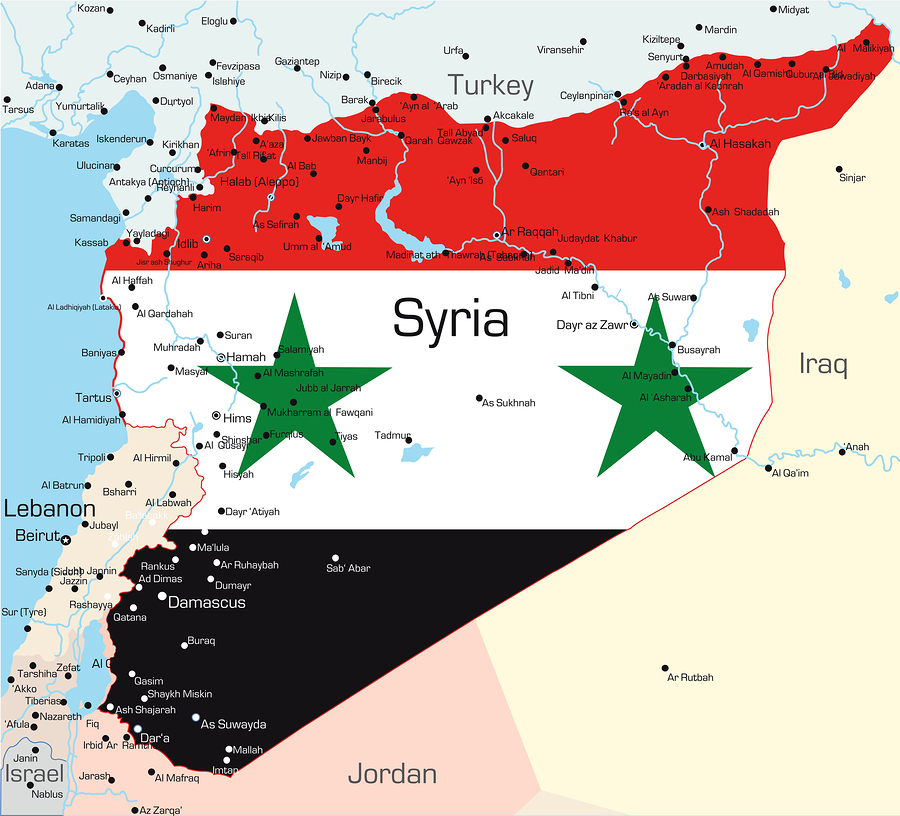Alwaght-Due to their abrupt appearance and lack of social basis in Syria, anti-Syrian government rebels have lost their efficiency for the opponents of changes in Syria. Although Syrian government has lost its previous extensively organized international relation with world powers, there is not so much interest for international powers to interfere in the internal affairs of Syria based on Syrian previous good mutual relation with world powers.
Syria is located in a highly sensitive geopolitical situation in west-Asia. Therefore, this country is the focal point of relations with the international players of power in this region. According to world powers, overthrowing Syrian government was not previously needed.
Syrian Brotherhood was the main opposing group against Bashar-Al-Assad before the recent crisis in this country. Western countries were not interested in Syrian Brotherhood, because of its religious roots. Moreover, the increasing changes in Mideast since 2000, taking power by George Herbert Walker Bush as a Neoconservative in The United States and starting the second Intifada, also known as the Al-Aqsa Intifada based on its vital role in future Mideast indicate that Syria will play a significant role in Mideast in future.
Bashar Assad_ the young president of Syria_ has supported Palestinian resistance on the one hand and Resistance Front on the other hand. His support has intensified increasingly the western powers' abnormal enquiries from his government, since this Arabic country has become a very important land for the West. Western countries felt that Syria could change their face in Mideast, since US in occupied Afghanistan & Iraq has defeated and also changes in Lebanon in 2005 & 2006 (Rafik Hariri assassination & the defeat of Israel in 33 day war with Lebanon) and issues in Gaza Strip in 2009 (the defeat of Israel in 22-day war) were illustrated a dark face for United States in the world.
According to Bashar Al-Assad as the president of Syria, the union and coalition of four countries as Resistance Front against colonial interests of Western countries and the Zionist regime have been very impressive in Mideast. According to Western countries, forming a coalition in particular between Syria and Iran has been dangerous for their interests. Accordingly, overthrowing the government of president Bashar al-Assad was the main plan of western countries and their allies in the region. This was an irrationally hasty decision in 2011 at the height of the revolutions in Arabic countries called Islamic Awakening Movement.
At first, western countries wanted to act in Syria as they did in Libya. Therefore, they tended to overthrow the government of Bashar Al-Assad directly by force. They have quit their initial plan in Syria, since this country is different according to its geographical situation, specific military capabilities, and its security agreements with regional and international countries. Accordingly, growing a new conflict in Syria was the only possible solution for overthrowing Bashar Al-Assad's government. Since there is no conflict in Bashar Al-Assad's stable government, western countries had to create a serious conflict in Syria. To this end, they tried to use some politicians and parties as their agents in Syria. Since they do not have any power basis in Syria, their attempts led to a fiasco in political scene of Syria.
According to the international and regional supporters of this conflict in Syria, this crisis with extensively political supports would put an end to Bashar Al-Assad's government in two or three months period. Therefore, they chose a combination of the opposition groups for a while to achieve their intended objectives in Syria i.e. Overthrowing Bashar Al-Assad's government.
Due to some limitations, they had to bring together all of opposition groups including Islamists, Communists, Seculars, liberals, former Ba'thists who were not in Bashar Al-Assad's government anymore. It is noteworthy that Wahabi, Jihadi, and moderate political party such as Syrian Brotherhood (both liberal and religious) are among Islamists. In addition, opposition authors, lawyers, and independent figures were among the opposition groups, funding and supporting changes in Syria. There were different international and regional supporters of Syrian opposition groups. Wahabis and Jihadis (Al-Qaeda) were supported by Saudi Arabia, Syrian Brotherhood was supported by Turkey, and Seculars, Liberals, former Ba'thists & Syrian army were supported by the western countries. It is noteworthy that most of the opposition groups did not have any point in common.
According to the three month scenario of overthrowing Bashar Al-Assad' government, all opposition groups were ready for taking their shares in political power and position in future administration of Syria. This was truly Achilles heels of plan for crisis in Syria by western countries and their Arabic allies. After three years, this long crisis in Syria has made the groups of opposition to fight against each other rather than fighting against Bashar Al-Assad's government.
Syria is the land of variety of minorities and ethnicities. This subject is used in the structure of the crisis in Syria. Accordingly, Islamists supported by Turkey are against Jihadis who are killing Syrian people. Seculars and liberals are against Islamists who are seeking ruling of religion. Wahabis are against all of these groups.
The three following predictions can be among the possible ones in Syria in future:
1. US troops will withdraw compulsorily both for military action in Syria and for supporting this crisis in Syria.
2. Qatar will not support the anti-Syrian government rebels.
3. Turkey will join to pro-Syrian government movement i.e. Iran
It can be concluded that future of Syria, as an Arabic country whose population is mostly Muslim is not crystal. In addition, determining a specific destiny and considering an ultimate plan for its future seem difficult and complicated.



























